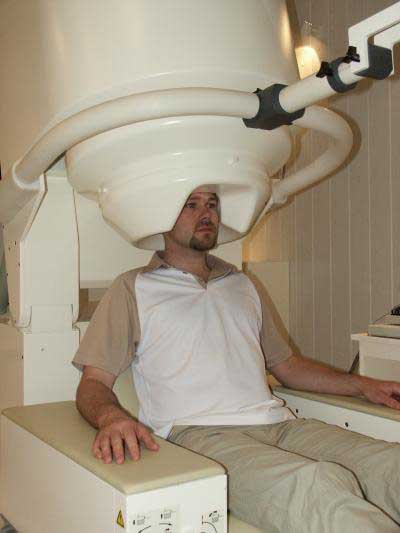Brain Scans Often Unnecessary

About 3 percent of a growing number of unnecessary brain scans find things that just make people worry needlessly, a new study finds.
The researchers warn that optional brain scans — increasingly popular with healthy people who want to allay fears about brain cancer and stroke risks that have not even been diagnosed — may do more harm than good.
The scientists analyzed results of nearly 20,000 brain scans from people who undertook the tests for a variety of reasons, such as general health checkups or when volunteering for medical research. None of them had any symptoms suggesting that they had an underlying brain condition.
But 3 percent of the people were found to have an abnormality on a brain MRI scan. Thing is, the scientists say, even when an incidental abnormality is found — such as a weakened blood vessel in the brain or a benign tumor —there is no clear medical evidence that treatment would do more good than harm.
This lack of evidence can create anxiety, with many patients feeling that a tough choice has to be made between risky, potentially unnecessary surgery or leaving their condition untreated.
"The difficulty with these health check-ups is that in the small number of people who do harbor some undiagnosed brain condition, there is not a clear next step," said Dr. Rustam Al-Shahi Salman, an MRC clinician scientist at the University of Edinburgh.
The findings are detailed in the British Medical Journal.
Get the world’s most fascinating discoveries delivered straight to your inbox.
"We do not have enough medical evidence to know whether we should treat the abnormalities or just leave them be," Al-Shahi Salman said. "Until we have that knowledge, we cannot be sure that commercial screening benefits people with incidental findings on their brain scan. Furthermore, there is little evidence that 'peace of mind' lasts for the people with normal brain scans."
The study was funded by the UK Medical Research Council, the Chief Scientist Office of the Scottish Government, the Scottish Funding Council and the U.S. National Heart, Lung and Blood Institute.

